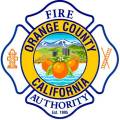The Orange County Fire Authority, in the news recently because of their reality show The Academy: Orange County Fire about training new firefighters in southern California, is making more news for eliminating their hand crew. After having had a crew for 30 years, the department is facing some monetary shortfalls and has already reduced their proposed 2009-2010 budget by $24 million, which is about 10 percent.
 They had planned to upgrade their part-time crew which last year cost the OCFA $373,151 to a full-time crew next year, at a cost of $1.7 million, so they could get what OCFA calls “round-the-clock-staffing”. A 24-hour hand crew is an unusual staffing pattern, to say the least.
They had planned to upgrade their part-time crew which last year cost the OCFA $373,151 to a full-time crew next year, at a cost of $1.7 million, so they could get what OCFA calls “round-the-clock-staffing”. A 24-hour hand crew is an unusual staffing pattern, to say the least.
In spite of the budget problems, they recently bought $24 million worth of specially-equipped helicopters so they could begin fighting fire with them at night, but disputes internally and with their union have kept them grounded after sunset. And oddly, $24 million is identical to the amount they are having to cut from the 2009-2010 budget.
Here is an excerpt from an article in the Orange County Register.
OCFA spent nearly $35,000 to recruit and test potential full-time hand-crew members this year. Job offers were ready to go out in May when the OCFA decided to freeze the positions – part of a department hiring freeze. Qualified candidates remain on a hiring list.
It was an OCFA hand crew’s scraping and cutting away of brush that kept the Freeway Complex fire from racing into Anaheim Hills and Orange Park Acres after it jumped the 91 and ran up the hillsides, said Joe Kerr, president of the Orange County Professional Firefighters.
The fire service world is a world of specific roles. The engineer drives the engine. The paramedic treats patients. The dispatcher answers emergency calls and sends help. The hand crew has its role: cutting fire lines around the fire. It is a complicated unit, dependent on teamwork and experience to be effective. It is a young man’s job, made up of hours of hard labor.
To make do, OCFA is taking paramedics and engineers out of their engines, handing them shovels and rakes, and teaching them how to be a hand crew. Instead of treating car accident victims and heart attacks, engine crews are cutting brush and picking up used hoses.
Firefighters can do the job of clearing brush, but they are hardly the experts, union and management officials agree, and in many cases are not qualified to safely handle some of the equipment.
“I just don’t think it’s the best use of our resources,” Cruz said. But management decided not to staff a hand crew, and the agency is trying to make it work.
“It’s not a tool we use every day,” Kerr said. “Hand crews are specifically dedicated to the mission of brush clearance. And that is just as important as the mission of our firefighters.”
Some engines carry chainsaws, but many of OCFA’s 800-person firefighting force are not certified to use them. Just 45 out of roughly 800 OCFA firefighters are qualified to use chainsaws to cut down burning trees, with 20 more waiting to be certified.
Additional wildland chainsaw training has been offered to firefighters, but is not required, Battalion Chief Kris Concepcion said.
In July, that fact forced OCFA firefighters to wait for two Los Angeles County hand crews to cut down burning eucalyptus trees at a Lake Forest fire. Plans are in the works next year to train an additional 100 firefighters to cut down trees, Cruz said.
Pulling engines from their stations to transform them into makeshift hand crews sets off a complex chain reaction, forcing other engines to cover larger areas. That means potentially longer response times and longer periods of times engines and trucks are unavailable for the next call.
“We still cover the dirt,” Concepcion said.

Departments are constantly utilizing the assets (personnel) they have to expand their roles. Firefighters are becoming EMT’s and paramedics, and vice versa. What used to be a “world of specific roles” is being replaced with a “world in which cross training is the answer to inadequate funding”. If it hasn’t hit your agency yet, it’s-a-coming!